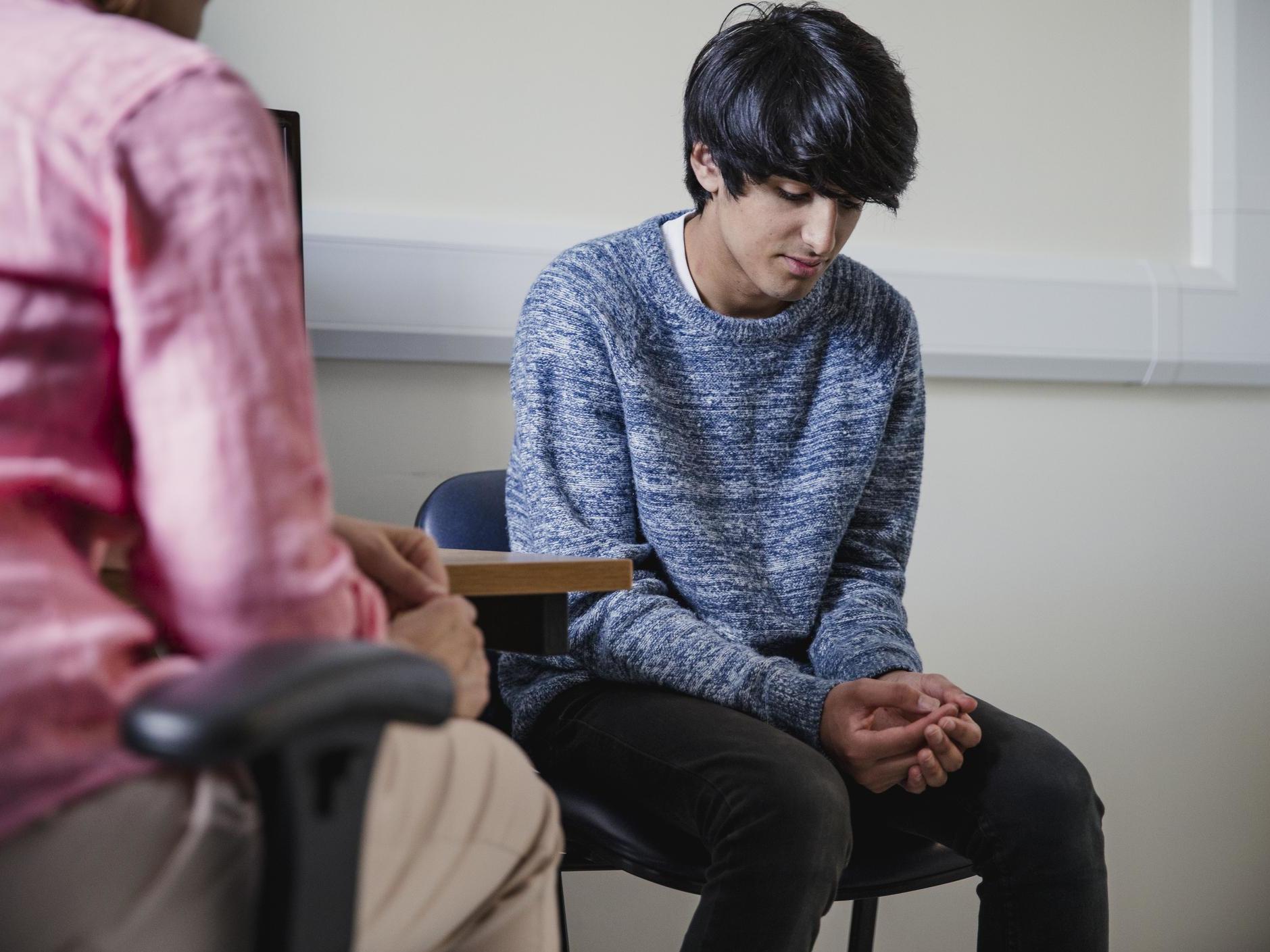Young people’s mental health suffering most during lockdown, research suggests
‘We need more support tailored to young people who are struggling,’ says Shirley Cramer

Your support helps us to tell the story
From reproductive rights to climate change to Big Tech, The Independent is on the ground when the story is developing. Whether it's investigating the financials of Elon Musk's pro-Trump PAC or producing our latest documentary, 'The A Word', which shines a light on the American women fighting for reproductive rights, we know how important it is to parse out the facts from the messaging.
At such a critical moment in US history, we need reporters on the ground. Your donation allows us to keep sending journalists to speak to both sides of the story.
The Independent is trusted by Americans across the entire political spectrum. And unlike many other quality news outlets, we choose not to lock Americans out of our reporting and analysis with paywalls. We believe quality journalism should be available to everyone, paid for by those who can afford it.
Your support makes all the difference.Almost three quarters of young people are feeling more anxious about the future as a result of the Covid-19 pandemic, new research suggests.
A survey by the Royal Society for Public Health (RSPH) found that 70 per cent of 18 to 24-year-olds are experiencing more anxiety than usual, compared with 47 per cent of over-75s.
Overall, young people are experiencing worse mental health outcomes from life during the pandemic their older counterparts, according to the survey, with those aged 18 to 24 reporting “amplified” feelings of low mood and poor wellbeing.
Almost two thirds (62 per cent) of the same age group said they feel more lonely more frequently during lockdown compared with 21 per cent of those aged 65 to 74.
People under 25 are also more likely to be working in a sector that has been closed due to the pandemic and could face further anxiety around personal health as they are asked to return, the RSPH said.
Ahead of Mental Health Awareness Week, which runs between May 18 and May 24, the RSPH is now calling for more support services for young people.
Shirley Cramer, RSPH’s chief executive, said: “Life under lockdown has been a challenge for all of us, but we are very concerned to see that young people are most vulnerable to experiencing adverse effects on their mental health and wellbeing.
“We need more support tailored to young people who are struggling in this unique situation if we want to avoid further disadvantaging young people by allowing a mental health crisis to develop as a consequence of lockdown.”
The survey, carried out between March 31 and April 8, also found 58 per cent of people aged 18 to 24 disagreed the government was doing enough to protect the public’s mental health and wellbeing.
Meanwhile, 38 per cent of respondents of the same age group said they had experienced less good quality sleep, compared with 15 per cent of over-75s.
Financial concerns had also left 16 per cent of 18 to 24-year-olds unable to isolate as much they would have liked to. The same issue was reported by 11 per cent of people aged 55 to 64.
Dr Antonis Kousoulis, director for England and Wales at the Mental Health Foundation, said: “It is troubling but not surprising that the pandemic and lockdown have had a particularly negative impact on young people’s mental health.
“Their education, relationships and socialising have been severely disrupted and current projections for the economy and the job marketplace will be adding to their stress.”
If you need help with your mental health you can contact YoungMinds on 020 7089 5050 or by visiting their website.
Join our commenting forum
Join thought-provoking conversations, follow other Independent readers and see their replies
Comments